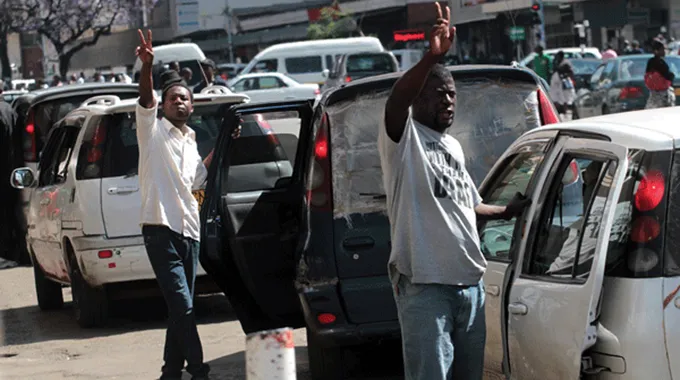
ZimNowAnalysis Desk
Harare— After years of piecemeal announcements, the government last month reiterated plans to regulate kombis (minibus taxis) and outlaw unlicensed “mushikashika” operators. But history suggests this won’t improve commuter safety or service without sweeping reforms in the broader transportation ecosystem.
The Zimbabwe Republic Police recently launched a crackdown targeting 13,500 unregistered kombis in Harare—out of some 16,500 in circulation—with only about 2,950 being officially licensed. Since the operation began, 6,540 arrests have been made for unlicensed activity. Authorities claim this will bring structure to public transport and curb fare hikes and dangerous vehicles.
Past promises, limited change
When the government revived ZUPCO buses during COVID-19, officials touted it as a “courageous program” to ease commuter woes. While initial uptake was strong, the lack of reliability, vehicle maintenance, and integration with kombis meant the bus network failed to fully benefit urban commuters.
In 2014, government efforts to professionalize kombis and Mushikashika met resistance. Deregulation had triggered massive growth—over 60,000 kombis nationwide by 2015—but poor oversight led to dangerous driving, unroadworthy vehicles, touting, and criminality within the informal taxi sector.
Systemic issues need systemic fixes
Experts argue that arresting unlicensed operators only scratches the surface. The real challenge is Zimbabwe’s fragmented transport system, which lacks
Related Stories
- A cohesive Mass Transit Master Plan
- Sufficient regulated bus networks to compete with kombis
- Infrastructure investment for safe loading zones and licensed terminals
Without addressing these, compliance will remain patchy. Between police busts, kombis and mushikashikas simply re-emerge to meet commuter demand.
Police viewpoint
Commissioner Paul Nyathi, the national police spokesperson, acknowledges the need for multi-agency collaboration:
“Police support public service associations in terms of road safety, but proliferation of unregulated associations leads to fair challenges.”
Harare commuter associations, like GHACO, welcomed the clampdown but urged consistent enforcement.
Likelihood of success?
On enforcement alone: Temporary. Operators will adapt tactics or rebrand until licensed spaces are viable and buses are reliable.
On comprehensive reform: Possible. Couple tight regulation with affordable, reliable, and integrated transport options—and commuters may finally shift to safe, sanctioned services.
Bottom line: Without seismic investments in buses, infrastructure, and a joined-up transport policy, enforcement remains a band-aid. For kombi and mushikashika reforms to stick, Zimbabwe needs a fully functioning mass transit system—not just baton-wielding cops playing hide-and-seek with kombi and mushikashika operators.




















Leave Comments